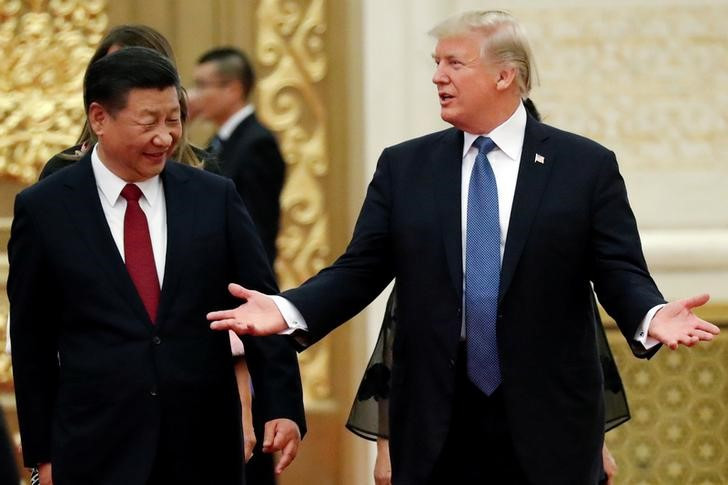China Slams US: Won't Change State-Run Economy Despite Trade War Demands
China's newest salvo blasting Trump suggests trade talks with the U.S. are in deep trouble.
China on Monday issued a strongly worded declaration saying demands by president Donald Trump for structural changes to China's state-run economy seek to "compel China to damage its own core interests."
Its statements seem to indicate that further trade talks aimed at forcing China to accept the major Trump demands such as an end to alleged forced technology transfers and a halt to subsidies for state-owned firms are headed for failure. These U.S. demands are not up for negotiation, said China.
The commentary piece published on state news agency Xinhua took particular issue with American demands China scale down its support for its state-owned enterprises (SOEs), which have been accused of demanding forced technology transfers as the price foreign companies must pay to do business in China.
"At the negotiating table, the U.S. government has made many arrogant requests, including restricting the development of state-owned enterprises," the article noted as translated by CNBC.
"Obviously, this is beyond the field and scope of trade negotiations, (and) touches upon China's fundamental economic system.

"This demonstrates that behind the trade war the U.S. has launched against China, there is an attempt to violate China's economic sovereignty, (and) compel China to damage its own core interests."
China's core interests include "national sovereignty, national security, territorial integrity, national unity, the stability of the national political system and society at large as established by the Chinese Constitution and the basic guarantee of sustainable economic and social development," according to a white paper on "China's Peaceful Development" released in September 2011, as translated by CNBC.
China's mammoth SOEs dominate strategic industries such as energy, telecommunications and defense. China has made no secret it's boosting the growth of its SOEs with subsidies and fiscal incentives, but foreign companies have long complained this state intervention amounts to an unfair economic advantage.
Chinese economists have long said doing away with subsidies to SOEs will undermine China's development model and with it the annual growth that keeps the country afloat.
"It means that China has to give up its development pattern ... and this would be suicidal," said a professor at the Chinese Academy of Sciences. "Considering the pros and cons, China would rather accept the U.S. raising the tariffs to 25 percent.
"China will not give up its bottom line just for the sake of reaching a deal. China can bear the consequences of and is prepared for failure."
The editorial also said the U.S. continues to make unfounded accusations that Beijing, China is forcing technology transfers from foreign firms operating in the country. It alleges this is all evidence the U.S side is "forcing China to change its development path."
This article originally appeared in IBTimes US.
This article is copyrighted by International Business Times, the business news leader





















